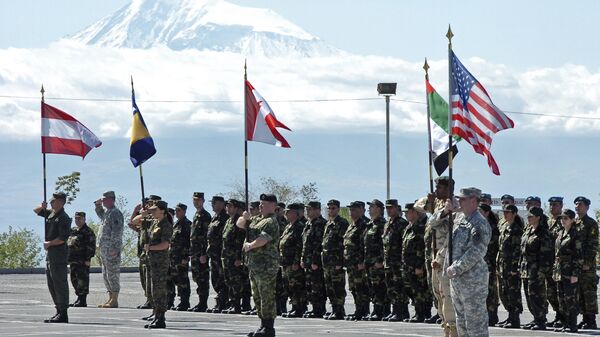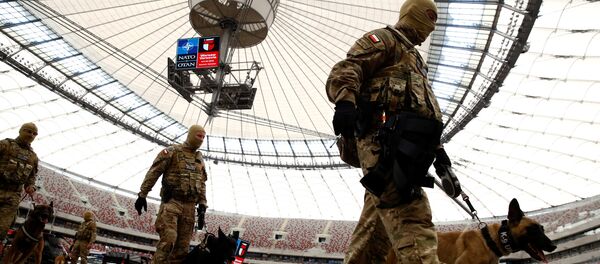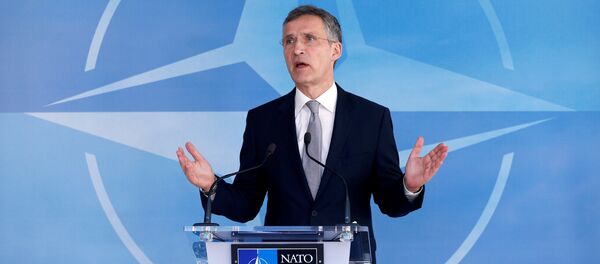MOSCOW (Sputnik) – The envoy issued a reminder that Russia offered the United States to clarify certain provisions of a bilateral 1972 agreement on the prevention of incidents at sea. He noted that Moscow has amassed a "solid basis" of similar bilateral deals with NATO states.
"We are ready for dialogue with the individual NATO countries that are interested in the improvement of bilateral mechanisms," Grushko said in an interview with Russia’s Kommersant daily.
Russia Bound to Respond Militarily,Technically in Response to NATO Confrontations
The North Atlantic Treaty Organization (NATO) should recognize that its confrontational measures with respect to Russia will inevitably result in a military and technical response, Grushko added.
"We are offered a confrontational agenda, in which we are absolutely uninterested. NATO must realize that from a military point of view all these measures will only have the opposite effect. Because it is clear to all sensible people (especially in the military) that a military-technical response is bound to come from our side."
NATO Impairs Afghan, European Security by Stopping Cooperation With Russia
NATO damages security both in Afghanistan and Europe by stopping cooperation in the conflict-torn central Asian country, Grushko also said.
"We are not laying down any conditions and are only proceeding from the fact that, by stopping cooperation with Russia on Afghanistan, the alliance seriously impairs the situation in the country."
The envoy reiterated the ripple effect created by NATO’s refusal to work with Russia in Afghanistan.
"The terminated cooperation is reflected not only in Afghanistan, but it also damages the security situation in Europe. After all, the Europeans are affected by the flow of drugs and uncontrolled migration, including from Afghanistan."
Russia Concerned by NATO-Trained Ukrainian Forces Deployed to Eastern Contact Line
"We are concerned about the fact that members of the armed forces of Ukraine, which were trained by instructors from NATO countries, are being transferred to the contact line in Donbass."
Moscow Aims to Preserve Power Balance in Black Sea in Response to NATO's Expansion
Russia will do its utmost to maintain the balance of powers in the Black Sea in response to the expansion of NATO's naval forces in the region, Alexander Grushko said.
"We will do everything so that the balance of powers in the region is not violated. This applies to the air component, the sea, and all other tools that will be needed."
Reaffirming Moscow’s stance to preserve the region as one of cooperation, the Russian envoy pointed to regular and destabilizing incursions into the Black Sea by non-littoral countries, primarily the United States.
"We are most concerned about the presence of non-regional powers – primarily the United States naval forces, which now regularly enter the Black Sea… These are destabilizing steps that not only damage regional security, but also undermine strategic stability."





